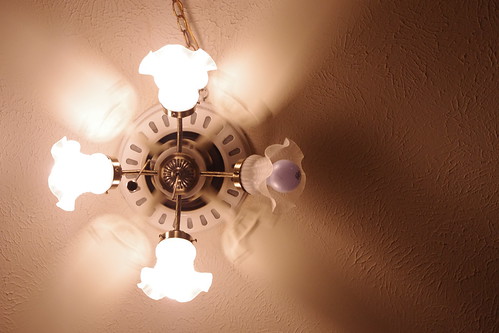With pressing environmental concerns and tightening budgets, everyone wants to reduce their energy consumption. However, it can seem like a daunting task. With so many things drawing power throughout your home, cutting back on your energy usage can seem like a major headache, but there are actually some simple things you can do to reduce your usage.
1. Unplug Unused Devices
Did you know that many devices draw power even when turned off? While their power draw may seem minuscule, it all adds up over time — especially if you have many devices lying around, as most people do.
Whether it’s the blender you hardly use or the TV in the spare bedroom, unplugging electronics when they aren’t going to be used for a long time can help save energy throughout the year.
2. Use LED Bulbs
The incandescent bulbs of the past draw far more energy than today’s LED bulbs. They also go out much sooner than LED bulbs, with a single LED bulb lasting as long as 21 incandescent bulbs. The same LED bulb will only draw 10 watts of power while an incandescent draws 60. The total operational cost for an LED bulb is just $38 over 23 years while an incandescent bulb will cost you over $200 for the same usage.
This makes replacing bulbs throughout your home with new LED bulbs a great, small, and simple investment. At an average price of $8 and an average run time of over 25,000 hours, LED bulbs are a smart way to reduce your home’s energy consumption in the long-term.
3. Opt for Fans

A great way to save on heating and cooling costs year-round is to use strategically placed fans to help circulate hot and cold air throughout the home. There is a common misconception that fans cool air down, but they actually just displace it.
When standing directly in front of a fan, the movement of air can make you feel cooler, but when you place fans in the right spots, they will move hot or cold air into rooms and ultimately make your home more comfortable. Ceiling fans can also be utilized to keep warm air circulating within a room during winter.
All of this allows your HVAC system to work more efficiently while adding very little power draw to your overall energy bill.
4. Maintain Your HVAC System
Perhaps one of the simplest and most unexpected ways you can reduce your energy consumption is by maintaining your home’s HVAC system. Preventative maintenance is important and includes simple things like clearing around the outdoor unit and changing the filter.
Both routine and preventative maintenance play an essential role in extending the life of your unit while also allowing it to operate more efficiently, saving you money on your utility bills.
As you can see, reducing your home’s energy consumption isn’t particularly difficult. With a few key changes, you can see a lower energy bill and a lower carbon footprint that will quickly add up as time goes by.